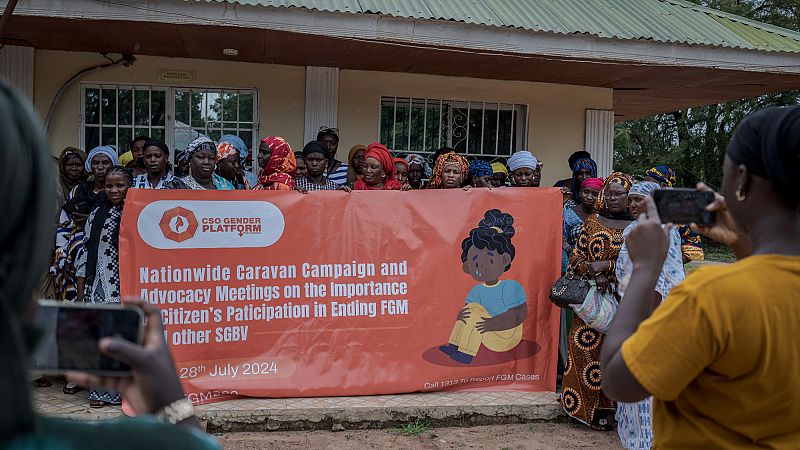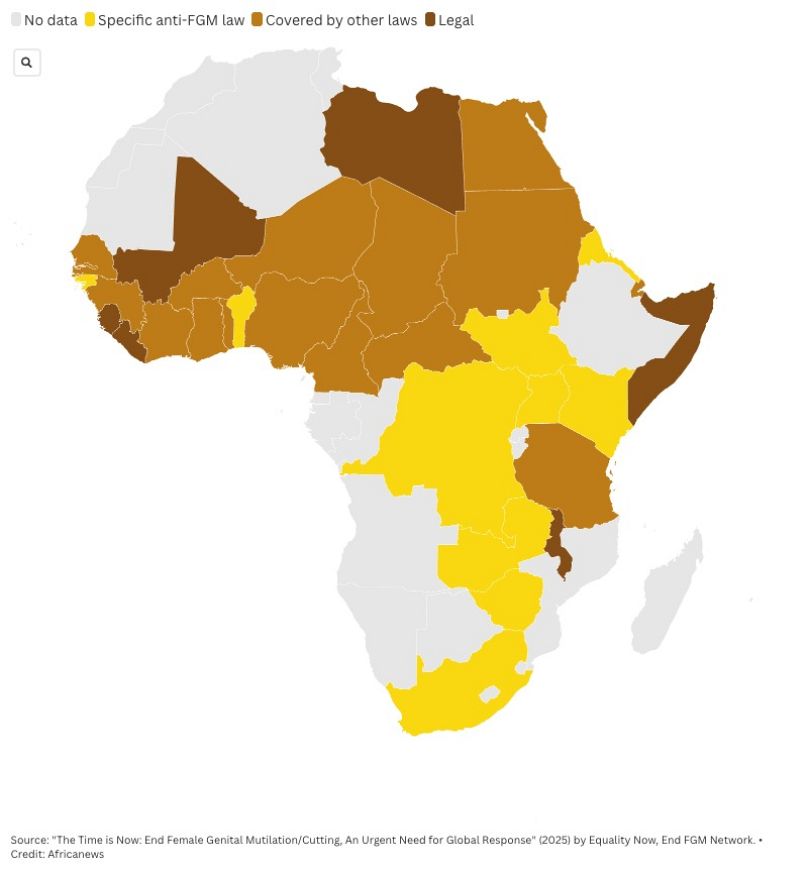The Gambia: Baby death sparks outrage over female genital mutilation

The death of a baby girl who was a victim of female genital mutilation (FGM) has sparked outrage in the Gambia.
The one-month-old infant was rushed to hospital in the capital of Banjul on Sunday, after she developed severe bleeding.
Police said she was pronounced dead on arrival. Autopsy results are still awaited but many people in the country have linked the baby’s death to complications from female genital mutilation.
Gambian women's rights activist Fatou Baldeh called FGM "a brutal, senseless act" in a post on X.
"Shame on anyone pushing to decriminalise this violence. FGM is not culture, it’s cruelty", she added in reaction to the baby's death.
Police said two women had been arrested for their alleged involvement in the event.
Rights groups and local officials have emphasised the need to protect children from FGM. Gambian NGO Women in Liberation and Leadership, founded by Baldeh, called the incident "a grave violation of the child’s fundamental human rights."
Abdoulie Ceesay, the lawmaker for the Kombo North District where the incident happened, said the child's death should serve as "a turning-point and a moment for our nation to renew its unwavering commitment to protecting every child's right to life, safety, and dignity."
The World Health Organization (WHO) defines female genital mutilation as "all procedures that involve partial or total removal of the external female genitalia, or other injury to the female genital organs for non-medical reasons."
Where is female genital mutilation criminalized in Africa.
The Gambia banned FGM in 2015 but there have been few prosecutions and convictions, and this cultural practice remains widespread.
In the West African state, 75% of women and girls between the ages of 15 and 49 have undergone some form of FGM, according to the United Nations.
In July 2024, the Gambian parliament rejected a bill that would have overturned the ban on female genital mutilation, after months of heated debate in the largely Muslim nation of less than 3 million people.
Over 230 million women and girls worldwide have undergone female genital mutilation, according to WHO.
Today


